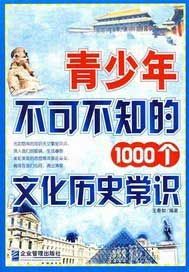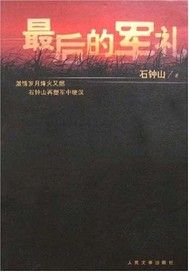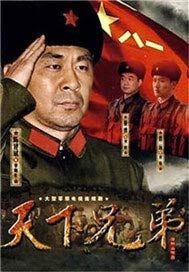当前位置:
纪实传记
> 一个瑜伽行者的自传
> 第七十七章 Rabindranath Tagore
第七十七章 Rabindranath Tagore
第七十七章 Rabindranath Tagore And I Compare Schools
“Rabindranath Tagore taught us to sing,as a natural form of self-expression,like the birds。”
Bhola Nath,a bright fourteen-year-old lad at my Ranchi school,gave me this explanation after I had complimented him one morning on his melodious outbursts。With or without provocation,the boy poured forth a tuneful stream。He had previously attended the famous Tagore school of“Santiniketan”(Haven of Peace)at Bolpur。
“The songs of Rabindranath have been on my lips since early youth,”I told my companion。“All Bengal,even the unlettered peasants,delights in his lofty verse。”
Bhola and I sang together a few refrains from Tagore,who has set to music thousands of Indian poems,some original and others of hoary antiquity。
“I met Rabindranath soon after he had received the Nobel Prize for literature,”I remarked after our vocalizing。“I was drawn to visit him because I admired his undiplomatic courage in disposing of his literary critics。”I chuckled。
Bhola curiously inquired the story。
“The scholars severely flayed Tagore for introducing a new style into Bengali poetry,”I began。He mixed colloquial and classical expressions,ignoring all the prescribed limitations dear to the punditshearts。
“One infuential critic slightingly referred to Rabindranath as a‘pigeon-poet who sold his cooings in print for a rupee。’But Tagores revenge was at hand;the whole Western world paid homage at his feet soon after he had translated into English his Gitanjali(”Song Offerings)。A trainload of pundits,including his one-time critics,went to Santiniketan to offer their congratulations。
Rabindranath received his guests only after an intentionally long delay,and then heard their praise in stoic silence。Finally he turned against them their own habitual weapons of criticism。
‘Gentlemen,’he said,‘the fragrant honors you here bestow are incongruously mingled with the putrid odors of your past contempt。Is there possibly anyconnection between my award of the Nobel Prize,and your suddenly acute powers of appreciation?I am still the same poet who displeased you when I frst offered my humble fowers at the shrine of Bengal。’
“The newspapers published an account of the bold chastisement given by Tagore。I admired the outspoken words of a man unhypnotized by fattery,”I went on。“I was introduced to Rabindranath in Calcutta by his secretary,Mr。C。F。Andrews,who was simply attired in a Bengali dhoti。He referred lovingly to Tagore as his gurudeva。”“Rabindranath received me graciously。He emanated a soothing aura of charm,culture,and courtliness。Replying to my question about his literary background,Tagore told me that one ancient source of his inspiration,besides our religious epics,had been the classical poet,Bidyapati。”
Inspired by these memories,I began to sing Tagores version of an old Bengali song,“Light the Lamp of Thy Love”。Bhola and I chanted joyously as we strolled over the Vidyalaya grounds。
About two years after founding the Ranchi school,I received an invitation from Rabindranath to visit him at Santiniketan in order to discuss our educational ideals。I went gladly。The poet was seated in his study when I entered;I thought then,as at our frst meeting,that he was as striking a model of superb manhood as any painter could desire。His beautifully chiseled face,nobly patrician,was framed in long hair and fowing beard。Large,melting eyes;an angelic smile;and a voice of futelike quality which was literally enchanting。Stalwart,tall,and grave,he combined an almost womanly tenderness with the delightful spontaneity of a child。No idealized conception of a poet could fnd more suitable embodiment than in this gentle singer。
Tagore and I were soon deep in a comparative study of our schools,both founded along unorthodox lines。We discovered many identical features-outdoor instruction,simplicity,ample scope for the childs creative spirit。Rabindranath,however,laid considerable stress on the study of literature and poetry,and the self-expression through music and song which I had already noted in the case of Bhola。The Santiniketan children observed periods of silence,but were given no special yoga training。
The poet listened with flattering attention to my description of the energizing“Yogoda”exercises and the yoga concentration techniques which are taught to all students at Ranchi。
Tagore told me of his own early educational struggles。“I fed from school after the ffth grade,”he said,laughing。I could readily understand how his innate poetic delicacyhad been affronted by the dreary,disciplinary atmosphere of a schoolroom。
“That is why I opened Santiniketan under the shady trees and the glories of the sky。”He motioned eloquently to a little group studying in the beautiful garden。“A child is in his natural setting amidst the fowers and songbirds。Only thus may he fully express the hidden wealth of his individual endowment。True education can never be crammed and pumped from without;rather it must aid in bringing spontaneously to the surface the infnite hoards of wisdom within。”
I agreed。“The idealistic and hero-worshiping instincts of the young are starved on an exclusive diet of statistics and chronological eras。”
The poet spoke lovingly of his father,Devendranath,who had inspired the Santiniketan beginnings。
“Father presented me with this fertile land,where he had already built a guest house and temple,”Rabindranath told me。“I started my educational experiment here in 190,with only ten boys。The eight thousand pounds which came with the Nobel Prize all went for the upkeep of the school。”
The elder Tagore,Devendranath,known far and wide as“Maharishi,”was a very remarkable man,as one may discover from his Autobiography。Two years of his manhood were spent in meditation in the Himalayas。In turn,his father,Dwarkanath Tagore,had been celebrated throughout Bengal for his munifcent public benefactions。From this illustrious tree has sprung a family of geniuses。Not Rabindranath alone;all his relatives have distinguished themselves in creative expression。His brothers,Gogonendra and Abanindra,are among the foremost artists of India;another brother,Dwijendra,is a deep-seeing philosopher,at whose gentle call the birds and woodland creatures respond。
Rabindranath invited me to stay overnight in the guest house。It was indeed a charming spectacle,in the evening,to see the poet seated with a group in the patio。
In his melodious voice,Rabindranath read to us a few of his exquisite poems,newly created。Most of his songs and plays,written for the delectation of his students,have been composed at Santiniketan。The beauty of his lines,to me,lies in his art of referring to God in nearly every stanza,yet seldom mentioning the sacred Name。“Drunk with the bliss of singing,”he wrote,“I forget myself and call thee friend who art my lord。”
The following day,after lunch,I bade the poet a reluctant farewell。I rejoice that his little school has now grown to an international university,“Viswa-Bharati,”where scholars of all lands have found an ideal setting。
Where the mind is without fear and the head is held high;
Where knowledge is free;
Where the world has not been broken up into fragments by
narrow domestic walls;
Where words come out from the depth of truth;
Where tireless striving stretches its arms toward perfection;
Where the clear stream of reason has not lost its way into the
dreary desert sand of dead habit;
Where the mind is led forward by Thee into ever-widening
thought and action;
Into that heaven of freedom,my Father,let my country
awake!
“Rabindranath Tagore taught us to sing,as a natural form of self-expression,like the birds。”
Bhola Nath,a bright fourteen-year-old lad at my Ranchi school,gave me this explanation after I had complimented him one morning on his melodious outbursts。With or without provocation,the boy poured forth a tuneful stream。He had previously attended the famous Tagore school of“Santiniketan”(Haven of Peace)at Bolpur。
“The songs of Rabindranath have been on my lips since early youth,”I told my companion。“All Bengal,even the unlettered peasants,delights in his lofty verse。”
Bhola and I sang together a few refrains from Tagore,who has set to music thousands of Indian poems,some original and others of hoary antiquity。
“I met Rabindranath soon after he had received the Nobel Prize for literature,”I remarked after our vocalizing。“I was drawn to visit him because I admired his undiplomatic courage in disposing of his literary critics。”I chuckled。
Bhola curiously inquired the story。
“The scholars severely flayed Tagore for introducing a new style into Bengali poetry,”I began。He mixed colloquial and classical expressions,ignoring all the prescribed limitations dear to the punditshearts。
“One infuential critic slightingly referred to Rabindranath as a‘pigeon-poet who sold his cooings in print for a rupee。’But Tagores revenge was at hand;the whole Western world paid homage at his feet soon after he had translated into English his Gitanjali(”Song Offerings)。A trainload of pundits,including his one-time critics,went to Santiniketan to offer their congratulations。
Rabindranath received his guests only after an intentionally long delay,and then heard their praise in stoic silence。Finally he turned against them their own habitual weapons of criticism。
‘Gentlemen,’he said,‘the fragrant honors you here bestow are incongruously mingled with the putrid odors of your past contempt。Is there possibly anyconnection between my award of the Nobel Prize,and your suddenly acute powers of appreciation?I am still the same poet who displeased you when I frst offered my humble fowers at the shrine of Bengal。’
“The newspapers published an account of the bold chastisement given by Tagore。I admired the outspoken words of a man unhypnotized by fattery,”I went on。“I was introduced to Rabindranath in Calcutta by his secretary,Mr。C。F。Andrews,who was simply attired in a Bengali dhoti。He referred lovingly to Tagore as his gurudeva。”“Rabindranath received me graciously。He emanated a soothing aura of charm,culture,and courtliness。Replying to my question about his literary background,Tagore told me that one ancient source of his inspiration,besides our religious epics,had been the classical poet,Bidyapati。”
Inspired by these memories,I began to sing Tagores version of an old Bengali song,“Light the Lamp of Thy Love”。Bhola and I chanted joyously as we strolled over the Vidyalaya grounds。
About two years after founding the Ranchi school,I received an invitation from Rabindranath to visit him at Santiniketan in order to discuss our educational ideals。I went gladly。The poet was seated in his study when I entered;I thought then,as at our frst meeting,that he was as striking a model of superb manhood as any painter could desire。His beautifully chiseled face,nobly patrician,was framed in long hair and fowing beard。Large,melting eyes;an angelic smile;and a voice of futelike quality which was literally enchanting。Stalwart,tall,and grave,he combined an almost womanly tenderness with the delightful spontaneity of a child。No idealized conception of a poet could fnd more suitable embodiment than in this gentle singer。
Tagore and I were soon deep in a comparative study of our schools,both founded along unorthodox lines。We discovered many identical features-outdoor instruction,simplicity,ample scope for the childs creative spirit。Rabindranath,however,laid considerable stress on the study of literature and poetry,and the self-expression through music and song which I had already noted in the case of Bhola。The Santiniketan children observed periods of silence,but were given no special yoga training。
The poet listened with flattering attention to my description of the energizing“Yogoda”exercises and the yoga concentration techniques which are taught to all students at Ranchi。
Tagore told me of his own early educational struggles。“I fed from school after the ffth grade,”he said,laughing。I could readily understand how his innate poetic delicacyhad been affronted by the dreary,disciplinary atmosphere of a schoolroom。
“That is why I opened Santiniketan under the shady trees and the glories of the sky。”He motioned eloquently to a little group studying in the beautiful garden。“A child is in his natural setting amidst the fowers and songbirds。Only thus may he fully express the hidden wealth of his individual endowment。True education can never be crammed and pumped from without;rather it must aid in bringing spontaneously to the surface the infnite hoards of wisdom within。”
I agreed。“The idealistic and hero-worshiping instincts of the young are starved on an exclusive diet of statistics and chronological eras。”
The poet spoke lovingly of his father,Devendranath,who had inspired the Santiniketan beginnings。
“Father presented me with this fertile land,where he had already built a guest house and temple,”Rabindranath told me。“I started my educational experiment here in 190,with only ten boys。The eight thousand pounds which came with the Nobel Prize all went for the upkeep of the school。”
The elder Tagore,Devendranath,known far and wide as“Maharishi,”was a very remarkable man,as one may discover from his Autobiography。Two years of his manhood were spent in meditation in the Himalayas。In turn,his father,Dwarkanath Tagore,had been celebrated throughout Bengal for his munifcent public benefactions。From this illustrious tree has sprung a family of geniuses。Not Rabindranath alone;all his relatives have distinguished themselves in creative expression。His brothers,Gogonendra and Abanindra,are among the foremost artists of India;another brother,Dwijendra,is a deep-seeing philosopher,at whose gentle call the birds and woodland creatures respond。
Rabindranath invited me to stay overnight in the guest house。It was indeed a charming spectacle,in the evening,to see the poet seated with a group in the patio。
In his melodious voice,Rabindranath read to us a few of his exquisite poems,newly created。Most of his songs and plays,written for the delectation of his students,have been composed at Santiniketan。The beauty of his lines,to me,lies in his art of referring to God in nearly every stanza,yet seldom mentioning the sacred Name。“Drunk with the bliss of singing,”he wrote,“I forget myself and call thee friend who art my lord。”
The following day,after lunch,I bade the poet a reluctant farewell。I rejoice that his little school has now grown to an international university,“Viswa-Bharati,”where scholars of all lands have found an ideal setting。
Where the mind is without fear and the head is held high;
Where knowledge is free;
Where the world has not been broken up into fragments by
narrow domestic walls;
Where words come out from the depth of truth;
Where tireless striving stretches its arms toward perfection;
Where the clear stream of reason has not lost its way into the
dreary desert sand of dead habit;
Where the mind is led forward by Thee into ever-widening
thought and action;
Into that heaven of freedom,my Father,let my country
awake!



















